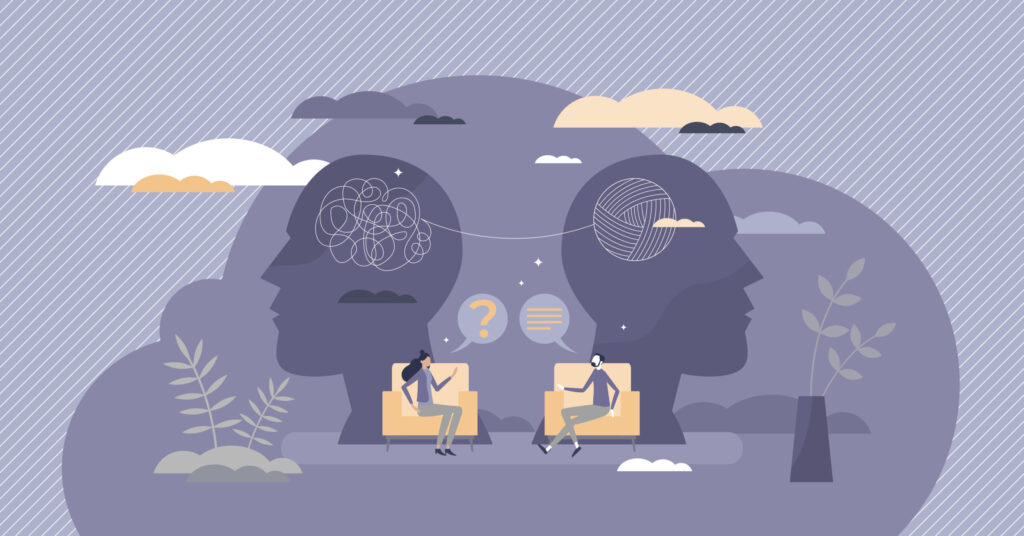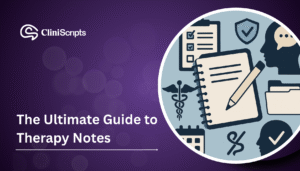Medically Reviewed By: Dr Gideon Kwok
Key Takeaways
- Therapy, often interchangeably called counseling or psychotherapy, is a science-backed process tailored for individual needs, aiming to help people navigate emotional, relational and life challenges.
- Topics addressed in therapy range widely, from emotional struggles and relationship issues to life transitions and traumatic experiences; what matters most is its relevance to the individual.
- Foundational questions can guide therapy sessions, but each person’s therapeutic journey evolves uniquely over time.
- Cognitive Behavioral Therapy (CBT) stands out as a prominent evidence-based approach, focusing on understanding and transforming negative thought patterns to promote healthier emotions and behaviors.
Therapy, a term often shrouded in mystery and misinterpreted, is an essential tool for many individuals seeking better mental well-being. In this blog, you will gain a broad overview to understanding what therapy is. Whether you’re someone who wishes to pursue a specialization in therapy as a career path or simply deciding whether you should go see a therapist one day, let’s dive into the world of therapy.
What is Therapy?
Therapy, often referred to as counseling or psychotherapy, is a process centered on helping individuals understand and resolve problems, make decisions, or cope with stressors in their lives. This process is entirely based on science, specialized for your individual treatment, which is what makes it so effective for some people. At its heart, therapy provides a safe and confidential environment where one can talk openly with a trained professional about personal issues or feelings that might be troubling or confusing. The purpose of therapy is to help you build a more solid sense of purpose and direction, not change who you are.
What to Talk About in Therapy?
The beauty of therapy is its vast scope; it accommodates various concerns, Some common topics people discuss in therapy include:
- Emotional struggles: Anxiety, depression, anger, or other strong feelings.
- Relationship issues: Challenges with partners, family, friends, or colleagues.
- Life transitions: Coping with major life changes like divorce, the death of a loved one, or job loss.
- Self-worth: Issues related to self-esteem or self-image.
- Traumatic experiences: Past events that still affect your daily life.
However, it’s important to remember that there’s no “correct” subject for therapy. If it matters to you, it’s definitely worth discussing.
Therapy Questions
Entering therapy, especially for the first time, can feel daunting. To make the most of your sessions, consider these foundational questions your therapist might ask you:
- What brings you here? This helps to pinpoint the pressing issue at hand.
- How do you hope to feel at the end of therapy? Defining goals can give the sessions direction.
- What coping mechanisms have you tried before? This provides the therapist with insight into your past strategies and what might work best moving forward.
- How do your struggles affect your daily life? This gives a tangible context to the emotional or psychological challenges.
Remember, these questions are just starting points. The therapeutic journey is unique to each individual, evolving with time and the relationship built between the therapist and the client.
Cognitive Behavioral Therapy (CBT)
CBT stands as one of the most popular and evidence-based forms of therapy used around the world. But what exactly is it?
Nature of CBT: CBT is a structured, goal-oriented therapy that focuses on the interrelation between thoughts, feelings and behaviors. It posits that by identifying and challenging negative thought patterns, one can influence their feelings and actions positively.
Key Principles:
- Awareness: Recognizing negative thought patterns or beliefs.
- Challenge: Actively questioning the validity or utility of these thoughts.
- Replacement: Adopting healthier, more constructive thought patterns.
Applications: CBT has been effective in treating a myriad of conditions, including depression, anxiety disorders, PTSD and obsessive-compulsive disorders.
If you wanna learn more on the different types of therapy, click here to read our latest blog highlighting the specialized and distinct therapeutic approaches used today.
Conclusion
MarkiTech contains a diverse portfolio of subsidiaries, each dedicated to digital health innovations. They emphasize telehealth, telemedicine and the establishment of virtual clinics, with a distinct mission: supporting seniors as they age at home while facilitating their caregivers.
Sensights.ai stands out for its emphasis on remote patient observation and solutions tailored for aging. By harnessing the power of artificial intelligence, it monitors patients’ health continuously, ensuring caregivers and patients are constantly connected and informed.
Meanwhile, Veyetals adopts rPPG and advanced AI-driven algorithms to gauge vitals on-the-go. It does this by analyzing the light reflection from blood vessels beneath the patient’s skin, allowing for non-intrusive and instant health checks.








